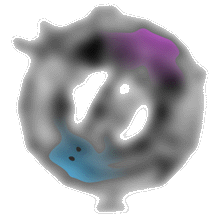EUROPEAN ENVIRONMENTAL TRIBUNAL
an active exercise of planetary citizenship

|
EUROPEAN ENVIRONMENTAL TRIBUNAL an active exercise of planetary citizenship |  |
| statutes |
2. Considering that the environment is part of the human being and, essentially, a condition of anthropological character. 3. Considering that, taking the environment as an essential part of the human being, culture exerts a preponderant function in relation to Nature, environment, present, past and future. 4. Considering the concept of Europe, as a dynamic set of different nations, cultures and histories, defending the principles established in the United Nations Chart of Human Rights. 5. Considering the principle of tribunal, whose etymological origin unveils us the idea of tribune, of a dynamic set of debates and discussions. 6. Considering that the only and effective judgment in environmental terms is that which emanates from each person, constituting, in this way, the principle of Law, fully supported by the concept of ethos. 7. Considering that, face to the exposed above, the only effective form to establish an environmental tribunal is the creation of an active and permanent transnational, transdisciplinary and transcultural forum of debates, of intercommunication and free information. 8. Considering that each person, being part of Nature, has the duty to do not impose its destruction (also in immaterial terms) to another person or alive being. 9. Considering that such a duty implicates the knowledge of its subject. 10. Considering that under the Article 21 of the United Nations Declaration on the Human Environment, dated of 1972, in Stockholm, the States have the "responsibility to make sure that the activities under their jurisdiction or control will not produce damage to the environment of other States or in areas beyond the limits of the national jurisdiction" - and that such responsibility is present in daily activities of individuals. 11. Considering that the world is strongly interdependent and that a damage (also in immaterial terms) in a country means prejudice not only to other States or to areas beyond the limits of its national jurisdiction, but also to the whole planet. 12. Considering that the Article 30, of 1974, of the Resolution of the United Nations General Assembly, known as the Chart of Economic Rights and Duties of the States, declares that all States are responsible for the protection, preservation and improvement of the environment for the present and future generations - but, considering, yet, such environment not only as a material reality and that such protection, preservation and improvement cannot be imposed and cannot be effectively applied without an active participation of each person. 13. And, finally, considering and reaffirming that all effective action at an ecological level (material and immaterial) presupposes an active participation of each person, that are much beyond of repressive mechanisms that act only on the surface of the facts. To constitute a privileged forum for the observation, debate, intercommunication and free information about environmental and cultural questions, such as science, art, social science, law, logics, history, literature, poetry, technology and so on, in a transnational, transcultural and transdiciplinary basis. The European Environmental Tribunal will have, among its fundamental characteristics, that of to be an planetary observatory. The European Environmental Tribunal will not establish judgments or sentences, but will provide, by all possible means to it, the support to the free communication about facts related to the environment while anthropological condition. The environment, as an anthropological condition, will always be considered as part of culture. The participants of the European Environmental Tribunal must, in maximum possible, reflect the human and cultural diversity. And a transdisciplinary, a transcultural and a transnational character should design the constitution of its structure. A president, two vice presidents, directors, international advisors and independent members will constitute the European Environmental Tribunal. But such bureaucratic design can vary. The European Environmental Tribunal will try, by all means in its possibility, to support and promote the publishing of books, papers, websites, exhibitions, meetings, congresses and all forms that make possible the full realization of the established in the articles 2, 3, 4 and 5. The European Environmental Tribunal will not, in any case, associate itself, by any mean, or even identify itself, in any time or place, with any political field, ideology, political party, religion, sect or religious system, or groups of people that, by any mean, establish, directly or indirectly, any type of sectarianism. The staff of the European Environmental Tribunal must not be part of any political party. |